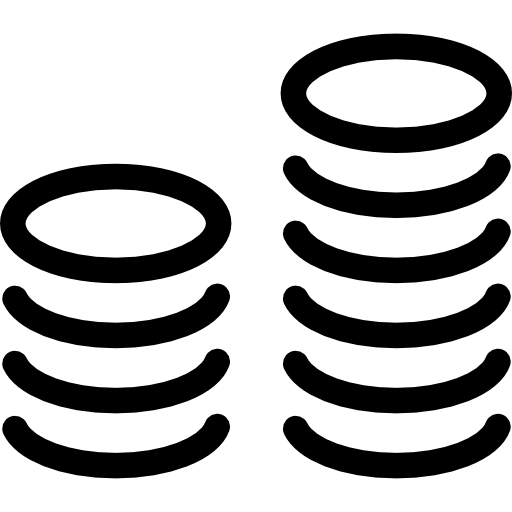
Starting date : Jun. 2015 > Oct. 2018
Lifetime: 41 months

Program in support : ECSEL-FP7

Status project : complete

CEA-Leti's contact :
Marco Ranieri
Bernard Strée

Project Coordinator: Infineon Technologies (DE)
Partners: - BE: OnSemiconductorBelgium, Tenneco Automotive Europe
- DE: Advantec, AVL, BMW., Daimler, Fraunhofer FhG-IISB, Fraunhofer FhG-IPA, Infineon Technologies, NXP Semiconductor, Offis, Siemens, Technische Universitaet Dresden
- FR: CEA, Hutchinson, STMicroelectronics, Valéo
- IT: CNR, Ideas&Motion srl, IFEVS, Solbian Energie Alternative srl, Torino e-District Consorzio, Università di Pisa
- NL: TNO, NXP Semiconductors, Technische Universiteit Eindhoven + other partners from ES, UK, RO, AT, LV, LT, FI, FR, CZ and Taiwan

Target market: n/a

Publications:
FULL TEXT LINK: https://www.researchgate.net/ publication/308470908_Electronic_Module_for_the_ Thermal_Monitoring_of_a_Li-ion_Battery_Cell_through_ the_Electrochemical_Impedance_Estimation

Investment: € 53.7 m.
EC Contribution: € 17.3 m.

| Stakes
The main aim of the 3Ccar project is to establish a cooperative environment among almost fifty European research teams with shared visions and objectives. Such a large project is naturally divided into ten subprojects, each addressing a specific subject. Thus, three teams from CEA, CEA-Liten and CEA-Leti have been working on the following three topics:
The aim of the Smart Battery Cell activity is to build a 48V battery module demonstrator using Smart Li-ion Cells with embedded electronics to measure cell properties, ensure safe operation and communicate with the external BMS. A CEA Liten team has designed the best architecture and algorithms for embedded Electrochemical Impedance Spectroscopy (EIS), which provides an image of the internal cell condition
The entire vehicle powertrain falls within the scope of the Integrated Powertrain activity. CEA-Liten and CEA-Leti engineers have designed and simulated an electric motor with a built-in power controller based on GaN transistor technology
The Smart Semiconductors for Fuel Cell activity has addressed all the elements and devices composing a Smart Fuel Cell system. In this connection, a CEA-Liten team has developed a prototype of a DC/DC liquid cooled power converter with characteristics suitable for range extender applications and a 10-15 kW power output.
- A full Smart Battery Module has been assembled in cooperation with the partners.
Results of design and simulation work for an electric motor powered by a GaN-based inverter have been encouraging. GaN technology is expected to soon replace SiC transistors, which are very expensive to produce. Simulation has proved that GaN is an affordable, reliable alternative.
A DCDC power converter, designed to be integrated into the top of a standard fuel cell, has been fully developed, tested at different electrical loads and given satisfactory results in terms of efficiency, output voltage stability and input current ripple.
- The 3Ccar project provides highly integrated Components for Complexity Control in thereby affordable electrified cars. New semiconductors for complexity management (through its control and reduction) offer the next level of energy efficiency in transportation systems. 3Ccar’s impact is to maximize pragmatic strategy, i.e. use semiconductor technology-based innovations to manage functionality and increased complexity. This leads to cheaper, more efficient, robust, comfortable, reliable and usable automotive systems, strengthens Europe as a whole (OEM, Tier1, Semiconductor) by generating economic growth and new jobs. 3Ccar’s impact is driven vertically by innovations and horizontally by promoting growth and deployment in industry based on perceived European values. European engineers are recognized as developers, who ensure highest efficiency, convergence and manageable complexity.
- Our society values long-life products since they curtail waste. Fifty partners and a 55 M€ budget offer the overwhelming majority for innovative products, such as functional integrated powertrains and smart battery cells, unique selling features that enable Europe to advance towards global leadership. in the 3Ccar project are intended for worldwide commercialization, while promoting European OEMs wishing to manufacture in Europe. 3Ccar involves the standardization needed to ensure the setting up of large vertical supply chains. 3Ccar proves that cooperation between industry, research institutes, governments and customers is pivotal to excellence in Europe.
- An important feature of the project has been to recognize and exploit synergies with other EU projects to allow rapid innovation cycles between aligned projects. The 55 M€ budget and 10 B€ impact generate an R&D expenditure ratio of 200, which is ten times higher than the semiconductor average and represents very strong innovation potential for transfer to the car and semiconductor industries. The technologies developed
IMPACT
CEA research teams at CEA-Liten and CEA-Leti institutes have acquired additional knowledge in the development of e-motors and inverters. This has prompted take-up of new projects involving e-vehicles, in which CEA is designing and developing a new generation of GaN-based inverters in cooperation with industrial partners. The 3Ccar project has led to new cooperative research at European level ranging from battery-powered mobility to new e-vehicles.
|
|